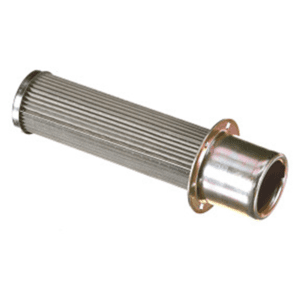In this guide, we will explore the features, importance, and maintenance of the CNH 87054105 Hydraulic Oil Filter—an essential component for maintaining the longevity and efficiency of your hydraulic systems. Whether you’re an operator or a maintenance professional, this blog will help you understand why the CNH 87054105 is a critical investment for your CNH machinery.
Introduction to CNH 87054105 Hydraulic Oil Filter
Hydraulic systems are the backbone of most heavy equipment, and keeping these systems clean is paramount to optimal performance. The CNH 87054105 Hydraulic Oil Filter is designed to trap contaminants and debris, ensuring smooth operation and minimizing wear on critical components. Without proper filtration, your equipment could experience costly breakdowns and reduced efficiency.
Importance of Hydraulic Oil Filters
Hydraulic oil filters are vital in protecting hydraulic systems from contamination. Dust, dirt, and other particles can enter the system during operation, leading to component wear, reduced efficiency, and potential damage. By filtering out these contaminants, hydraulic filters like the CNH 87054105 play a crucial role in extending the life of your equipment.
Why Choose CNH 87054105?
The CNH 87054105 is engineered for maximum filtration efficiency and durability. Manufactured specifically for CNH machinery, this hydraulic oil filter is designed to meet stringent quality standards. Its robust design ensures it can withstand harsh operating conditions while offering consistent performance.
The Role of Hydraulic Oil Filters in Equipment Maintenance
To maintain high-performance levels and prolong the life of your machinery, keeping hydraulic systems clean is essential. Regular maintenance and proper filtration prevent the buildup of contaminants, ensuring smoother operation and reducing costly repairs.
Prolonging Equipment Life
A clean hydraulic system means less friction, less wear, and fewer breakdowns. By using the CNH 87054105 Hydraulic Oil Filter, you’re actively protecting the hydraulic components of your equipment, which leads to prolonged machine life and better productivity.
Minimizing Downtime
A vital benefit of the CNH 87054105 is its ability to reduce equipment downtime. Unfiltered contaminants can cause significant damage to hydraulic systems, leading to unexpected repairs. By using a high-quality hydraulic oil filter like the CNH 87054105, you minimize the chances of unplanned stoppages and ensure maximum uptime.
Key Features of CNH 87054105 Hydraulic Oil Filter
The CNH 87054105 Hydraulic Oil Filter offers several essential features that make it a reliable choice for maintaining hydraulic systems in CNH machinery.
Efficient Filtration Process
This filter is designed with advanced filtration technology that ensures high efficiency in removing contaminants from hydraulic oil. Its multi-layered filter media provides superior dirt-holding capacity, which means longer service intervals and better protection for hydraulic components.
Durable Design and Construction
Built to withstand the demands of heavy machinery, the CNH 87054105 features rugged construction. The filter housing is resistant to high pressure, making it ideal for use in harsh environments where equipment operates under extreme conditions.
Compatibility with CNH Machines
The CNH 87054105 is precisely engineered to fit various CNH machines. This ensures that the filter provides an exact fit and operates at peak performance within your equipment’s hydraulic system, contributing to better fuel efficiency and overall machine productivity.
How to Install CNH 87054105 Hydraulic Oil Filter
Proper installation is essential to ensure the filter performs as expected. Follow these steps to install the CNH 87054105 Hydraulic Oil Filter:
Step-by-Step Installation Guide
- Shut down the machine: Before starting, make sure the equipment is turned off and the hydraulic system is depressurized.
- Locate the filter housing: Find the hydraulic filter compartment, usually marked on CNH machines.
- Remove the old filter: Carefully unscrew the old filter, ensuring no contaminants fall into the housing.
- Install the new CNH 87054105 filter: Lubricate the gasket with clean hydraulic oil and screw in the new filter.
- Tighten securely: Hand-tighten the filter and then use a filter wrench to ensure it is securely in place.
- Restart the system: Once the new filter is installed, restart the equipment and check for any leaks.
Common Mistakes to Avoid
- Not cleaning the filter housing: Always clean the housing area before installing the new filter to avoid introducing contaminants.
- Over-tightening the filter: This can damage the filter or cause leaks. Hand-tightening with a slight wrench turn is usually sufficient.
Maintaining Your CNH 87054105 Hydraulic Oil Filter
Regular maintenance of the CNH 87054105 Hydraulic Oil Filter will ensure it functions appropriately and extends its service life.
Cleaning and Inspection
Inspect the filter for damage or excessive wear during routine maintenance. Regularly clean the filter housing to ensure no debris gets into the hydraulic system when changing filters.
Replacing the Filter: Best Practices
- Replace the CNH 87054105 Hydraulic Oil Filter at the intervals recommended by CNH or sooner if the equipment operates in a particularly harsh environment.
- Keep spare filters on hand for quick replacement when needed to avoid downtime.
Signs Your Hydraulic Oil Filter Needs Replacement
Replacing your hydraulic oil filter before it fails is critical for avoiding machine damage and maintaining efficiency.
Warning Signs and Symptoms
- Sluggish hydraulic performance: If your machine is slow to respond or has reduced power, the filter may be clogged.
- Increased operating temperature: A clogged filter can cause the hydraulic system to overheat, indicating the need for replacement.
- Visible debris in hydraulic fluid: If contaminants are visible in the oil, it’s a sign that the filter isn’t working correctly.
Impact of a Faulty Filter on Machine Performance
A worn-out or faulty filter can lead to reduced hydraulic pressure, overheating, and even complete hydraulic system failure, resulting in expensive repairs.






